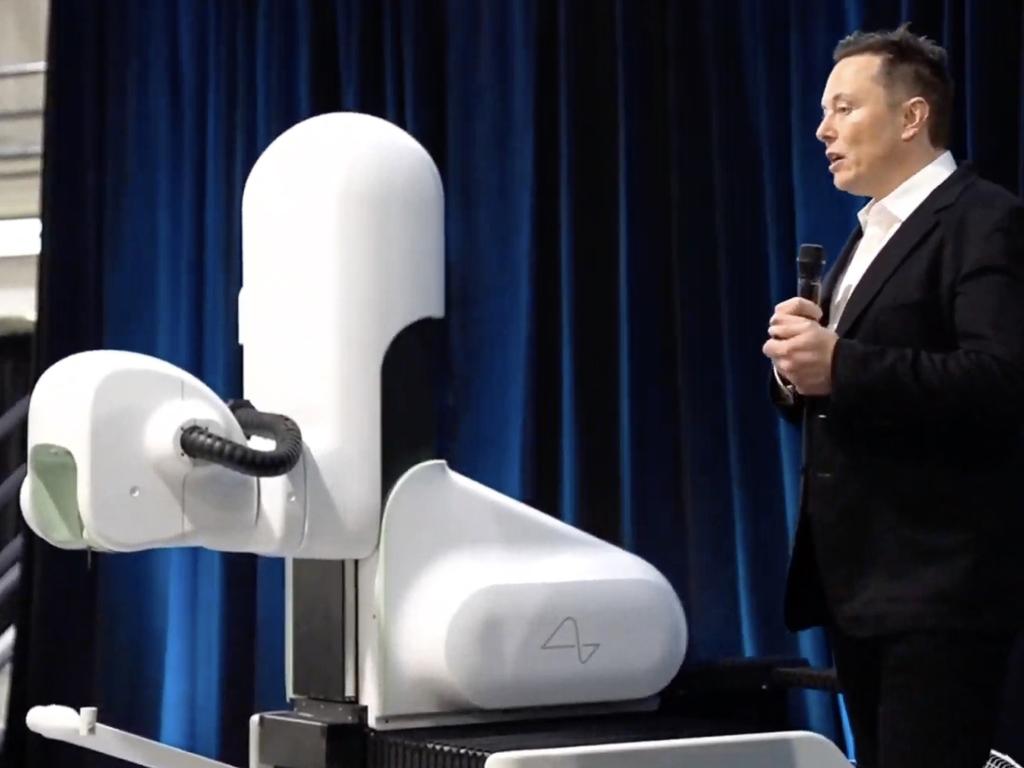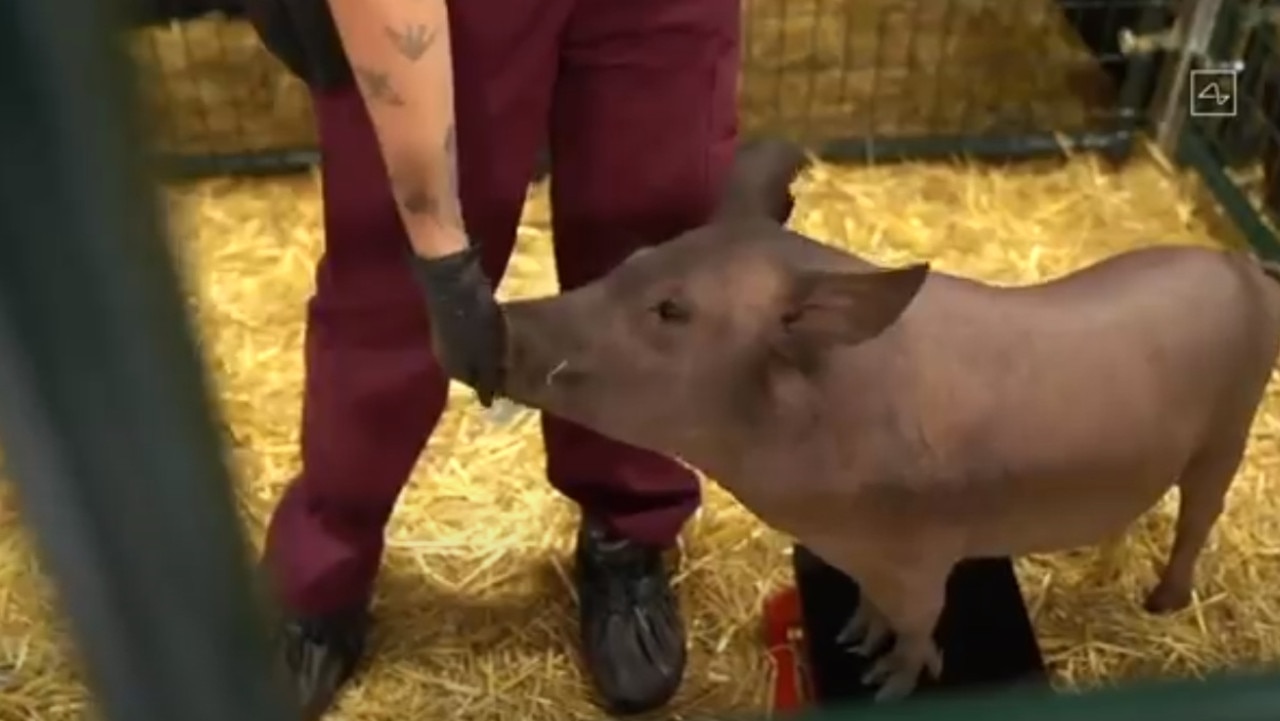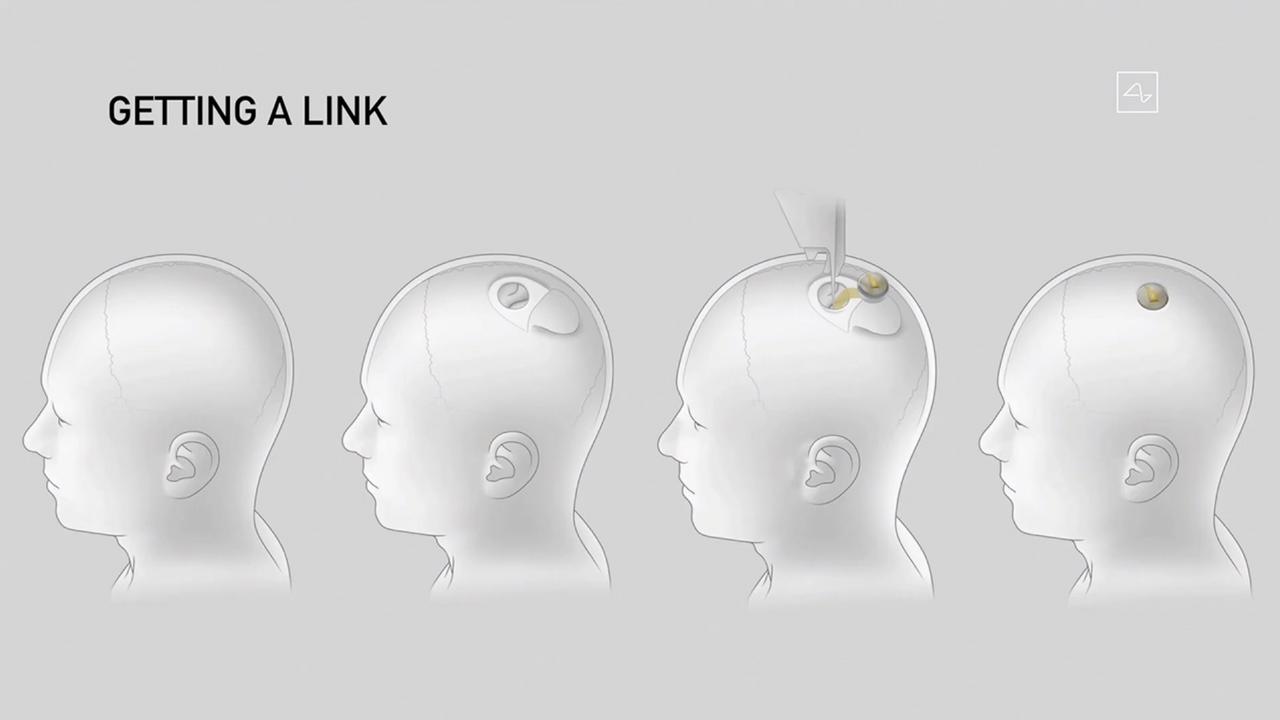Elon Musk told to implant Neuralink in his own brain by PETA after pig demo
Elon Musk has attracted criticism after “exploiting smart, sensitive pigs” to demonstrate a potentially life-changing new technology.
Tech maverick Elon Musk has come under fire for implanting computer control interfaces in the brains of pigs, with a leading animal rights advocacy group calling for him to install it in his own brain instead.
Elon Musk is best known as the co-founder of Tesla and the founder of SpaceX, but a third company he helped found is working to install “brain-machine interfaces” (BMI) that would let you control a computer using only your thoughts.
That company, Neuralink, recently conducted a demonstration of its work so far, showing its BMI implanted in a pig.

RELATED: Elon thanks worker who foiled 'serious attack'
RELATED: Mystery of Elon Musk’s $2.1 billion bonus
But that last point has drawn the ire of the People for the Ethical Treatment of Animals (PETA).
“PETA challenges Elon Musk to behave like a pioneer and implant the Neuralink chip in his own brain rather than exploiting smart, sensitive pigs who didn’t volunteer for surgery, don’t appreciate that he provides pats and a straw cell, and should be left out of pie-in-the-sky projects,” PETA president Ingrid Newkirk said.

RELATED: Photo comes back to haunt Elon Musk
RELATED: Musk’s first step in quest to ‘own no house’
PETA is opposed to animal testing – part of its motto is that “animals are not ours to experiment on”.
Ms Newkirk didn’t appear to have any similar issues or challenges to Mr Musk previously while Neuralink was testing its device on rats and apes. It is hoped the chip will one day restore mobility and autonomy to people with brain injuries or disorders,
On Saturday, Mr Musk revealed pigs had been implanted with Neuralink devices for two months.
He said they were “healthy, happy and indistinguishable from a normal pig”.
He also showed a pig that had a Neuralink device implanted and then later removed, in order to show that was possible.

Neuralink currently plans to use tiny surgical robots to implant ultra-thin cables around half the width of a hair, which will then connect to an external processor that can translate thoughts into computer instructions.
Mr Musk has also theorised the immediacy of this control interface (significantly faster than a mouse and keyboard for example) will be necessary for humans to keep up with artificial intelligence in the future, an emerging technology Mr Musk has become increasingly concerned about in recent years.



